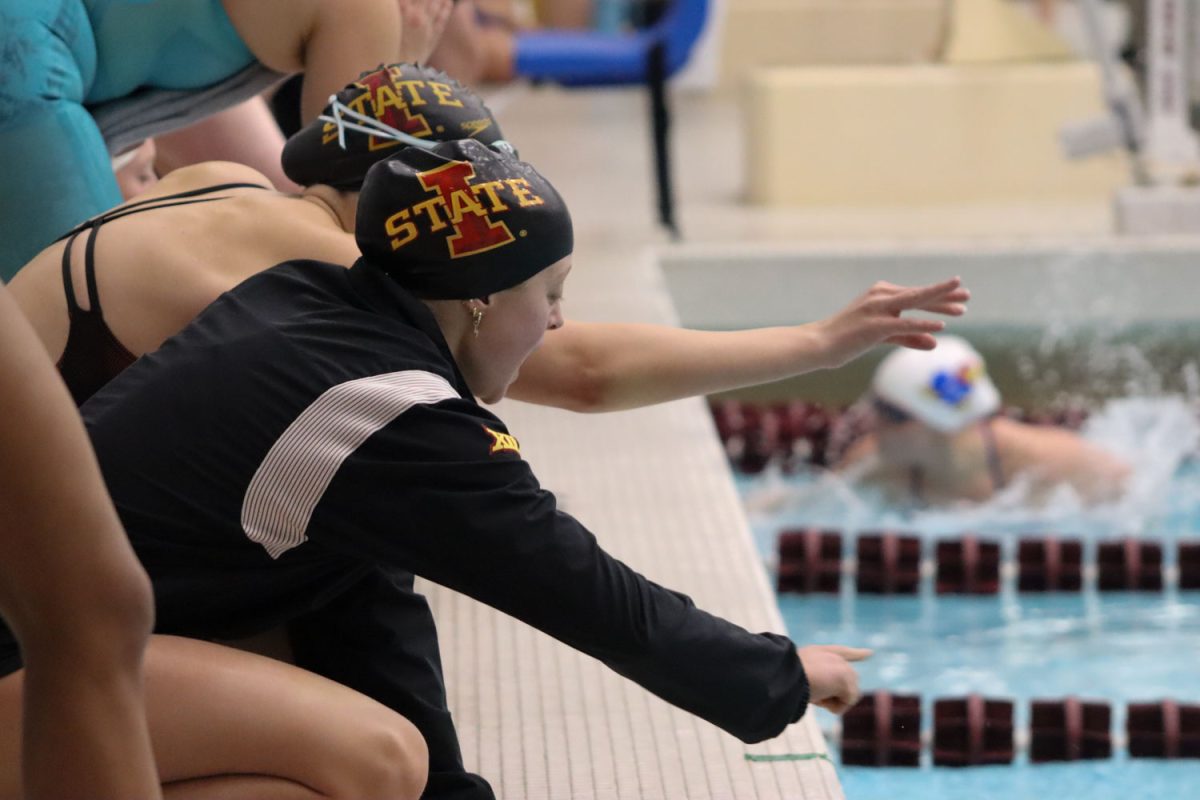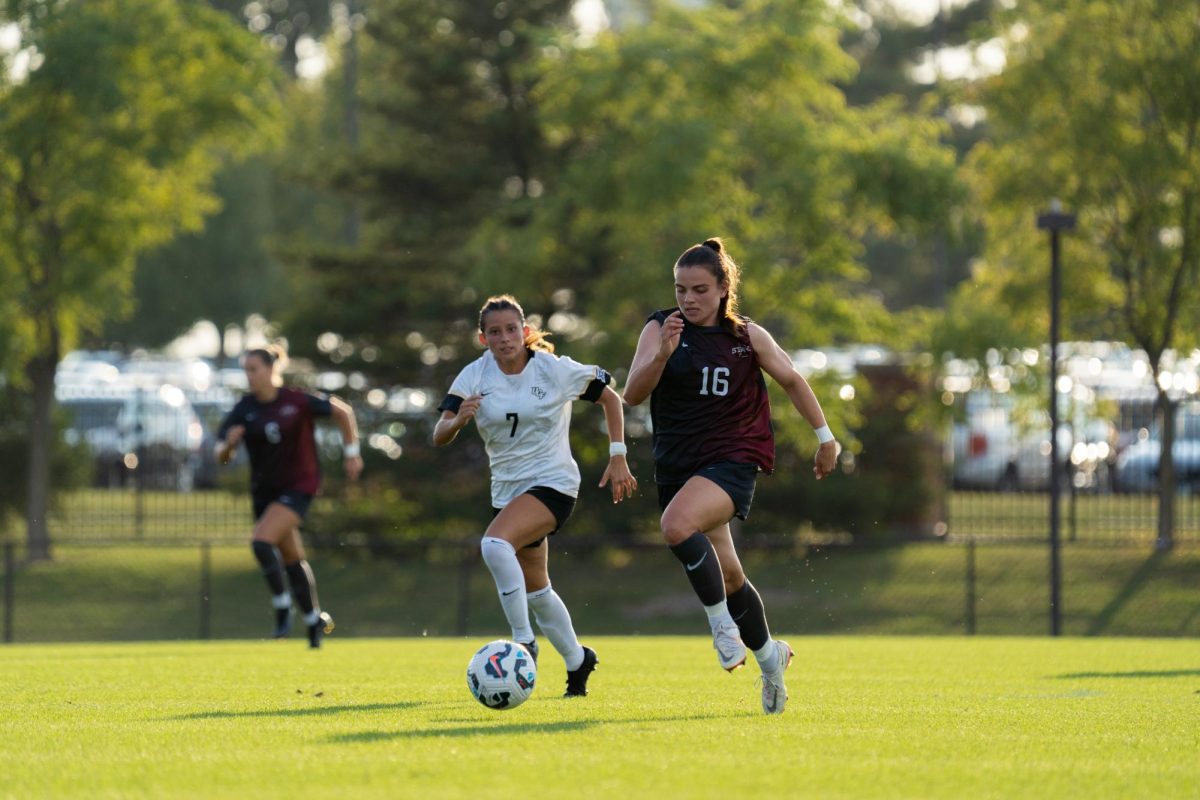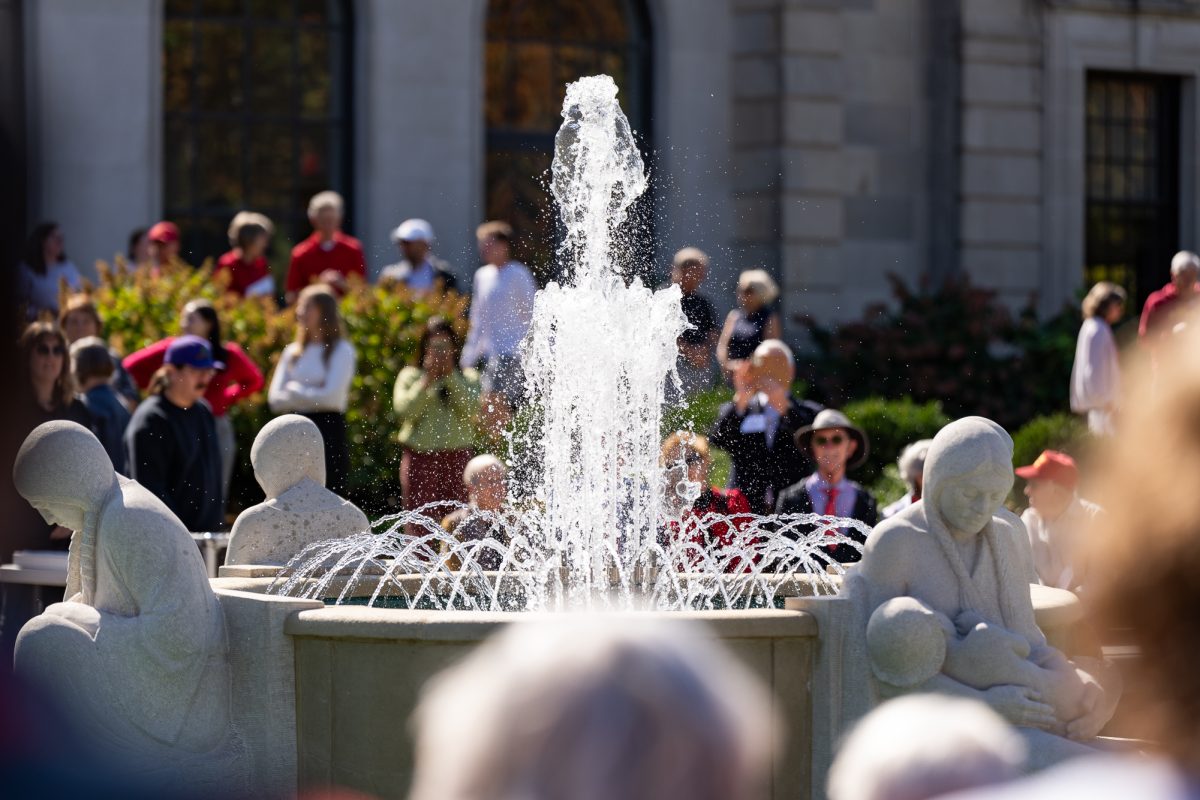Veishea 99 theses
December 1, 1998
Veishea is an important campus issue, and continuing discussion about it is welcome and necessary. While last year was viewed as a success by many, it was just the beginning of the rebuilding effort. We have a ways to go, and the continuing discussion of concerns people have about Veishea will be an important part of our efforts to maintain a safe celebration each spring.
We wanted to provide some background and insights into some frequently discussed issues related to Veishea.
While there has been a lot of concern expressed about the number of police on duty during Veishea 1998, there was no significant increase in law enforcement during the weekend. In 1997, the ISU DPS had 28 officers on duty Veishea weekend. In 1998, DPS had 32 officers on duty because the DPS staff grew by four.
In 1997, the Ames Police Department had 17 officers in vehicle patrol and 17 officers on foot patrol. In 1998, the Ames Police Department had 19 officers in vehicle patrol and 15 officers on foot patrol. This increase in officers in vehicle patrol was unrelated to Veishea. There were several new officers involved in field training at this time leading to the increase. In fact, the Ames Police Department sent officers home earlier last year than in previous years.
The number of peer security officers increased to 80 in 1998 from 70 in 1997. Peer security officers do not arrest students. They are more involved with keeping things under control and helping ensure that students do not get arrested.
Given an event that attracts large numbers of people, law enforcement will have a high profile to ensure that everything goes smoothly. While law enforcement was definitely on hand for Veishea 1998, arrests during the weekend plummeted by nearly two-thirds in comparison to Veishea 1997. ISU DPS charged 154 people in 1997 and only 57 in 1998. The most dramatic drop was in the arrests for underage possession from 100 in 1997 to two in 1998. Also, it is important to remember that increased law enforcement was requested by ISU students, particularly those in the greek community.
Law enforcement during Veishea 1998 was greatly reduced from previous Veisheas. In 1993, the year after rioting that nearly ended the tradition, vehicles and officers from the Ames Police Department, Iowa Highway Patrol, Story County Sheriffs Office and ISU DPS were everywhere.
Iowa State University does not make money from Veishea. It SPENDS money on Veishea. In recent years, the university has helped Veishea cover costs when traditional revenue producers have not performed as well as anticipated. The university provided substantial funding to help bring top performers to campus on Veishea weekend. This support is being provided again this year.
Money is made during Veishea weekend but by student organizations that sponsor food and activity booths. The Iowa State Daily also makes money from Veishea-related advertising.
Some businesses, particularly food vendors, naturally see some revenue on Veishea weekend. However, the city also pays for significant services during Veishea weekend, including utilities for Taste of Veishea and costs of emergency and security personnel. Many people have also scrutinized Veishea participation.
There has never been an official attendance count at Veishea events. However, based on ticket sales, we know that nearly 7,000 attended special entertainment events last year. We also know that the parade crowd was as strong as ever. The crowd at Taste of Veishea was down from last year but still very, very strong.
Some students did leave town last year. Some students always leave town during Veishea weekend and for a variety of reasons. But many stay and participate in Veishea activities and have a good time.
Veishea is a large event, and it takes hundreds of students to make it happen. For an event of its size to continue for 76 years, Veishea needs a consistent base of support. It can be argued that the ISU greek community has provided that consistent support.
Veishea has made a sincere effort to recruit minority students and resident hall students for planning committees. Representation of all students groups has grown on the Veishea Executive Board and Veishea subcommittees.
The diversity of student groups participating in Veishea has grown significantly. Over 90 organizations participated in the Open House event held on campus last year. This participation had doubled from Veishea 1997.
Veishea’s International Food Festival has grown so much in popularity that it was moved to the Memorial Union last year and had to close early because many vendors sold out of food.
Veishea is a student-run activity. ISU administrators do not come to Veishea meetings and tell student planners what to do. The Veishea Advisory Council is an advisory council. The university and community representatives on the council have provided input on Veishea but have never tried to control it.
The alcohol-free policy was an administrative action taken after input was received from the university and Ames communities, residents of Iowa and alumni. When rioting occurs, it is President Jischke who gets the calls from alumni, community leaders and state officials. Based on opinions he received about Veishea 1997, he could easily have ended Veishea forever. Instead, students were given a choice to make regarding Veishea’s future.
Some may view it as a forced mandate, but many others view it as an opportunity to recreate and ensure the integrity of a 76-year-old tradition. Veishea will continue to evolve in the future. The organization is currently working to ensure Veishea weekend is an action-packed event for the “Cyclone Family.”
We’d like to express our deepest appreciation to the constituents of the Government of the Student Body, Inter-Residence Hall Association, the Panhellenic Council, the Interfraternity Council and the Veishea Executive Board for their renewal of support for an alcohol-free Veishea. A continuing informed discussion will contribute significantly as we try to create a safe celebration in which all Iowa State students can take pride.
Aimee Lee
Scott DeSotel
General Co-Chairs Veishea, Inc.
Bryan Burkhardt
President
Government of the Student Body
Stu Sorrel
President
Interfraternity Council
Carolyn Jones
President
Panhellennic Council






